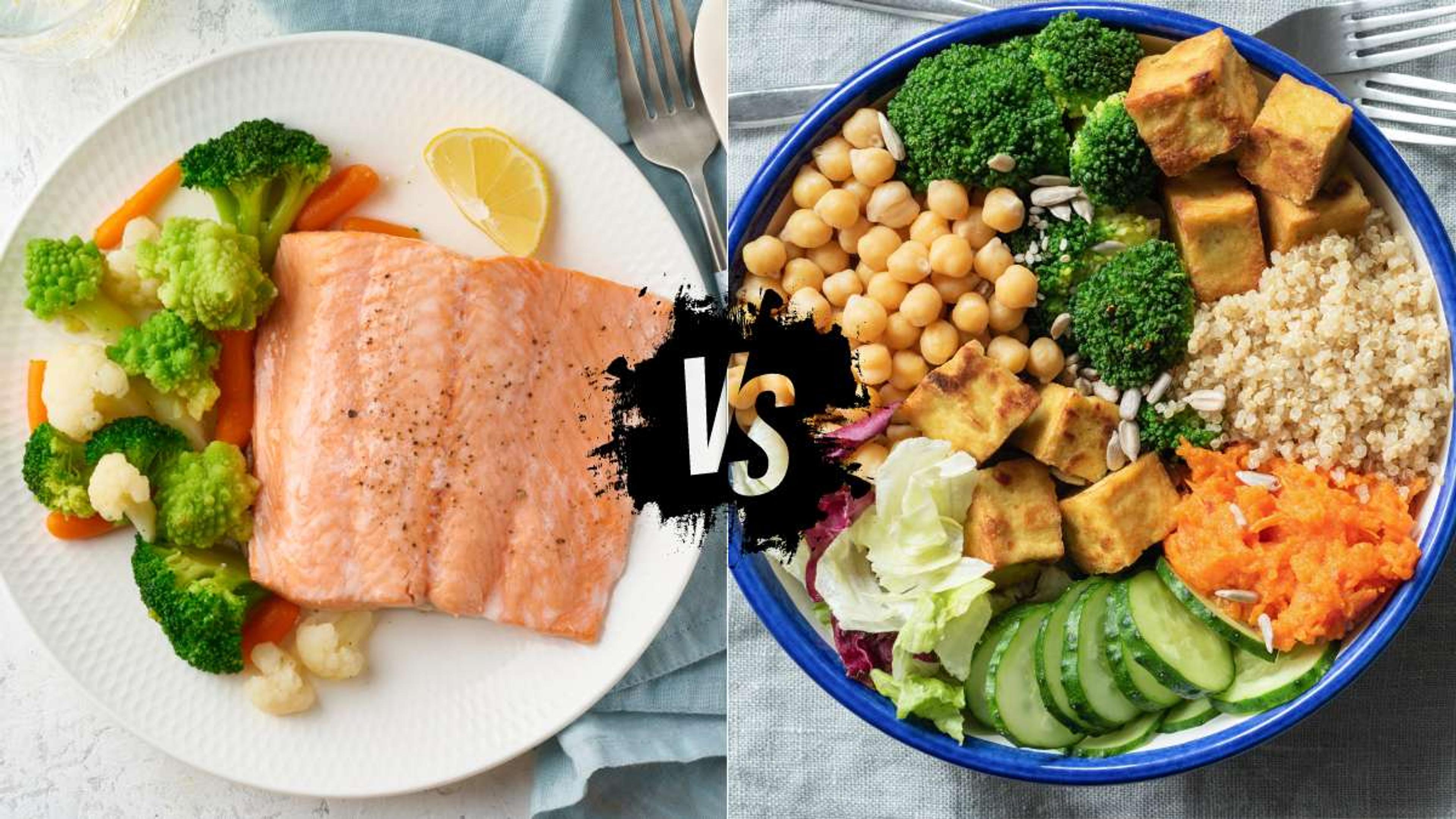The Fish Debate: Do Vegetarians Eat Fish or Not?

- Key Takeaways
- Definition of a Vegetarian and a Pescatarian
- Can Vegetarians Eat Fish or Seafood?
- Differentiating Pescetarians and Vegetarians
- Who are Flexitarians and do they Eat Fish or Seafood?
- Conclusion
- FAQs
Do you wonder, "do vegetarians eat fish or seafood?" Accustomed to a plant-based lifestyle, vegetarians avoid meat and all animal products. This blog will clarify this common misconception about vegetarianism and provide insight into the nuances of different non-meat diets.
Keep reading because we’re going to dive deep into whether a fish falls under the vegetarian menu!
Key Takeaways
- Vegetarians do not eat fish or seafood as they follow a plant-based diet and avoid all animal products, including fish.
- Pescatarians, on the other hand, are individuals who avoid most meats but still consume fish and seafood in their diet.
- The distinction between vegetarianism and pescetarianism lies in the inclusion or exclusion of fish and seafood from their diets.
Definition of a Vegetarian and a Pescatarian
A vegetarian eats only plant-based foods. No red meat, poultry, or animal products are part of their diet. They don't eat any fish or seafood either. The Vegetarian Society makes this rule clear.
On the other hand, a pescatarian diet is different. Pescatarians avoid most meats but they still eat various types of fish and seafood. Their diet also has many plant-based foods. This choice gives them more protein and omega-3 fatty acids for good health! This dietary choice is also often motivated by a desire to incorporate nutrient-rich seafood into a predominantly plant-based diet, striking a balance between ethical, health, and environmental considerations.
Can Vegetarians Eat Fish or Seafood?
Vegetarians do not eat fish or seafood. Vegetarians avoid consuming the flesh of living creatures, including fish. Fish and seafood are considered animal products, just like red meat or poultry, and are not considered vegetarian.
However, there is a group of individuals called pescetarians who avoid meat but still consume fish, such as mackerel. They include fish in their diet to obtain protein, omega-3 fatty acids, and vitamin B12.
But for strict vegetarians and vegans, any form of animal flesh is off-limits as part of their plant-based and cruelty-free lifestyle choices. It is important to note that a plant-based diet can also benefit heart health by reducing the risk of clogged arteries.
Differentiating Pescetarians and Vegetarians
While pescetarians and vegetarians both prioritize plant-based foods, they diverge in their stance on fish and seafood consumption. Here's a breakdown of the key differences between the two:

- Protein Sources: Pescetarians include fish and seafood as a significant source of protein, while vegetarians rely on plant-based protein sources like legumes, beans, nuts, and tofu.
- Nutritional Profile: Pescetarians benefit from the nutritional richness of fish, which provides omega-3 fatty acids, vitamin D, and essential minerals. Vegetarians focus on plant-based nutrients such as fiber, antioxidants, and vitamins found in fruits, vegetables, grains, and seeds.
- Ethical Considerations: Pescetarians grapple with ethical concerns related to fishing practices and marine ecosystem sustainability. Vegetarians typically avoid meat consumption due to animal welfare concerns associated with factory farming.
- Environmental Impact: Pescetarians need to navigate the environmental implications of seafood choices, considering overfishing, bycatch, and habitat destruction. Vegetarians often opt for lower environmental impact by avoiding the resource-intensive nature of meat production.
- Cultural and Personal Factors: Pescetarians might be influenced by cultural practices, taste preferences, or perceived health benefits of fish consumption. Vegetarians often choose their diet for reasons such as personal health, animal rights, or environmental consciousness.
- Dietary Flexibility: Pescetarianism may offer dietary flexibility when dining out or socializing, as fish is often more readily available and accommodated than plant-based options. Vegetarians might encounter more challenges in certain settings due to limited vegetarian offerings.
- Health Considerations: Pescetarians benefit from the cardiovascular advantages of omega-3 fatty acids found in fish, potentially reducing the risk of heart disease. Vegetarians emphasize the health benefits of a high-fiber, plant-based diet for overall well-being.
In summary, pescetarianism provides a middle ground between vegetarianism and omnivory by allowing fish and seafood consumption while eschewing other meats. This dietary choice presents individuals with the opportunity to tailor their diet to their ethical beliefs, health goals, and personal preferences.
Whether one opts for a plant-based vegetarian lifestyle or a pescetarian approach, the key is to foster a conscious and well-rounded approach to food choices that align with one's values and well-being.
Who are Flexitarians and do they Eat Fish or Seafood?
Flexitarians are individuals who follow a flexible approach to their diet. They primarily focus on consuming plant-based foods but occasionally incorporate less meat, fish, or seafood into their meals. While the frequency and quantity of animal products may vary, flexitarians generally aim to reduce their overall consumption of animal products for health, environmental, or ethical reasons.
Thus, some flexitarians may choose to include fish and seafood in their diet, while others may opt for alternative sources of protein such as plant foods. The choice ultimately depends on the individual's personal preferences and dietary goals.
Conclusion
In conclusion, vegetarians do not eat fish or seafood. They follow a plant-based diet and avoid all animal products, including fish. Fish and seafood are considered animal meat, which is not included in a vegetarian diet.
It's important to understand the health benefits distinction between vegetarianism and pescetarianism for heart health and ethical eating choices.
FAQs
1. Can vegetarians eat fish or seafood?
No, vegetarians do not eat fish or seafood. Vegetarians typically avoid all forms of animal flesh, including fish and shellfish.
2. Why don't vegetarians eat fish or seafood?
Vegetarians choose not to eat fish or seafood because they believe in avoiding the consumption of any animals for ethical, environmental, or health reasons. However, it is important for vegetarians to ensure they are getting enough nutrients, especially those that are essential for the nervous system.
3. What do vegetarians eat instead of fish or seafood?
Vegetarians have a wide variety of options available to them instead of fish and seafood. They can enjoy plant-based alternatives like tofu, tempeh, legumes (beans), and mock meat products that mimic the taste and texture of seafood. Whole grains are also a great source of protein and can be incorporated into vegetarian diets for added nutrition.
4. Are there any vegetarian diets that include fish or seafood?
Yes, there are some dietary choices that include both vegetarian principles and limited intake of fish or seafood such as pescetarianism. However, these diets are considered separate from traditional vegetarianism.

